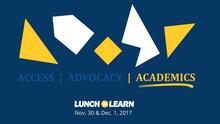Explicit patterns of instruction that build essential academic skills that transfer to every class
|
TOOLKIT FOR TEXT
Your toolkit for text is filled with the methods and materials that help you comprehend what you read. You have habits, built over years of experience as a reader, that you employ to help you know and grow. We need to help students build their own toolkit for text. It opens the gateway to making sense of new information and growing their ability to do something with it. How can you build text-dependent learning opportunities? V IS FOR VOCABULARY Students who have not been in an environment where vocabulary is routinely taught are nearly 6,500 words short of their peers by Junior year. If we want students to be literate in our content areas, they must unlock their ability to use the right words at the right times. TEACHING THE TRIANGLE Putting together different pieces of information - such as text, graphics, data - is a Bermuda Triangle for students. When students “don’t know” something, many times it is not a matter of not knowing the content, but not having the skill to put an answer together. Working through a process, even when the parts of the process are understood individually, can be difficult when they are combined. THE ART OF ARGUMENT Students want to live in a world of persuasion, but need to be skilled at argument. Argument is the art of supporting your opinion with facts and evidence, not just preference. Building an argument is a sophisticated skill, yet when done right is a clear sign a student has reached understanding. Good arguments are evidence of critical thinking. MADE TO MEASURE Effective teaching and learning is rooted in feedback. Feedback can close the gap between where your students are and where you want them to be. Anecdotes, artifacts and assessments each provide rich opportunities to provide students feedback. What is your framework for feedback? |
Our Toolkit for Text provides a clear path for how to help students engage with text in the classroom. Opportunities to comprehend, synthesize, create arguments, and reflect are an essential part of this process.
|



